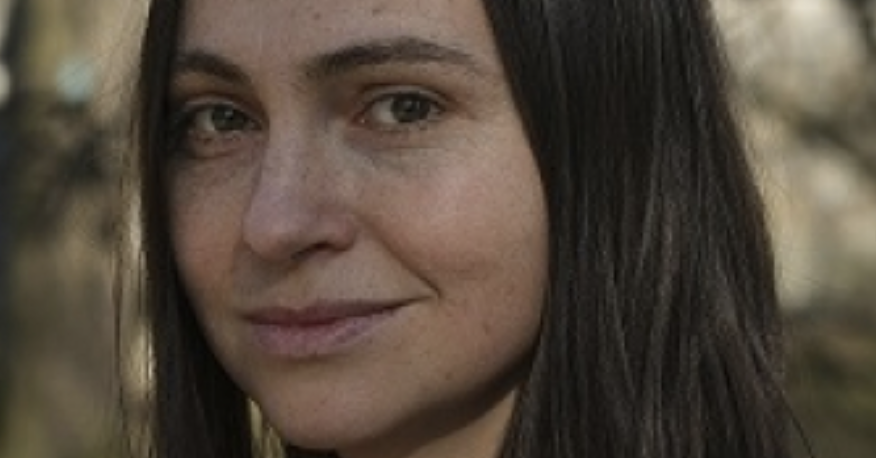Kateřina Staňková
The question driving Kateřina Staňková’s research into the treatment of advanced-stage cancer is as straightforward as it is revolutionary: what if we have all the tools that we need to treat it successfully, and all we are missing are the right tactics? Evolutionary game theory may hold the answer.
After her PhD in game theory at TU Delft, she first spent about a decade researching game theory in the context of biological systems such as pest control, mostly at Maastricht University. She shifted her focus when a good friend and collaborator of hers succumbed to cancer. ‘I was so angry,’ she says. ‘Just like in pest control, the doctors were always a step too late, employing an all-out strategy (giving maximal tolerable doses of chemo- or immunotherapy) that unavoidably resulted in the cancer becoming resistant to treatment.’
I approach cancer treatment as being a game theoretic contest between the physician’s therapy and the cancer cells’ resistance strategies

Evolutionary game theory
Kateřina approaches cancer treatment as being a game theoretic contest between the physician’s therapy and the cancer cells’ resistance strategies. Rather than killing the cancer, the goal then becomes to keep the patient alive much longer, with a good quality of live. The strategy will, for example, be to give some therapy, wait some months/weeks until the tumour burden has increased to certain level, and then giving some more therapy to reduce the tumour burden again. It was pioneered by the Moffitt Cancer Centre in Florida with whom she closely collaborates. ‘They were lacking mathematical models,’ she says. ‘That is where I came in, contributing the idea of leader-follower games, also called Stackelberg games, with which I can explain why this attrition strategy would be better.
In classical game theory, both (or all) sides are perfectly rational players, each having their own objective(s). Evolutionary game theory, on the other hand, describes how traits are inherited rather than chosen, helping biological entities survive. ‘In cancer treatment, the doctor is rational, and the cancer cells are evolving,’ Staňková says. ‘So, I need to connect these two independent fields, creating new theory along the way while tackling this real-world problem.’
Technology, Policy and Management
She applied for, and was granted, a Delft Technology Fellowship at the faculty of Technology, Policy and Management. ‘What I like about TPM is that real-world problems are approached from a systems perspective,’ she says. ‘A mathematical proof of concept is only one step towards having Dutch cancer clinics adopt more strategic thinking. If I do come up with a perfect treatment protocol, is it easy for a patient to comply with? And with growing evidence for the game theory approach, physicians still need some convincing. I also think that the patient should be given centre stage in deciding what treatment goal to aim for. TPM houses a very versatile group of people, we can really improve the life of these patients. And I can simply walk over to colleagues in mathematics and applied physics and include them in my projects.’
A mathematical proof of concept is only one step towards having Dutch cancer clinics adopt more strategic thinking
Combining multiple therapies
Kateřina has already been awarded various research grants, including an NWO-ENW award for “creative and risky ideas”, which stresses the radical newness of her approach. A few months ago, she added a Vidi grant to her list, in which she will focus on non-small cell lung cancer. ‘We will develop new models in which we can optimise the dosing and timing of multiple therapies,’ she says. ‘We will also try to determine the circumstances under which trying to eradicate the cancer would be appropriate, and when we should continue to focus on stabilising the tumour.’
She is building her own multidisciplinary research group, even looking into hiring a medical doctor. The mathematical methodology her group develops will not only be applicable to the treatment of cancer, but to other diseases as well. It is also very likely to be of value in combating antibiotic resistance, which the World Health Organisation calls one of the biggest threats to global health, food security, and development today.
So, she has plenty to do while catching some breath before applying for an ERC grant. In the meantime, she also helps educate the next generation of evolutionary game theorists. ‘I want them to realise that it is not only about mathematics, but also about solving real-world problems,’ she says. ‘And, of course, game-theoretical thinking may be useful to many more people, and that is why I want to grow the next generation.’
The patient should be given centre stage in deciding what treatment goal to aim for